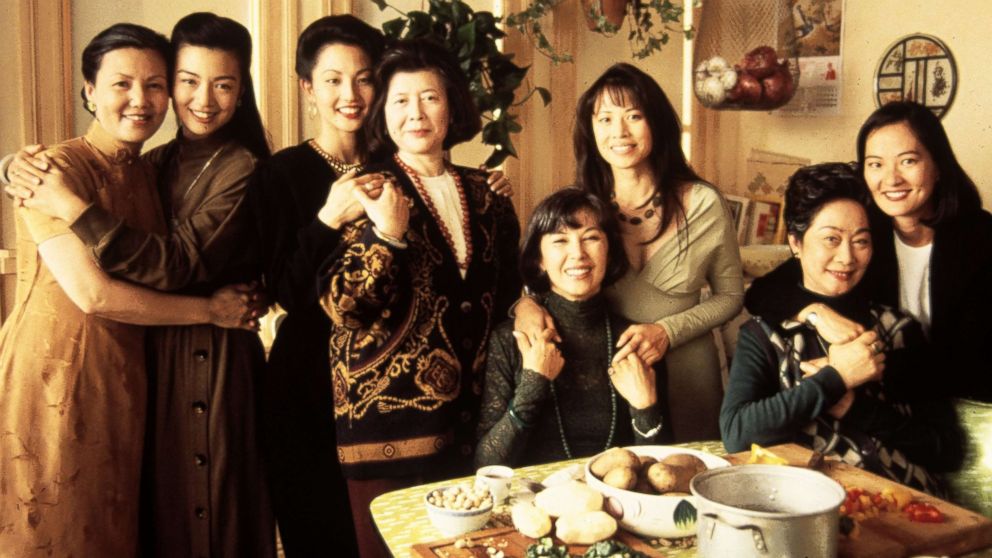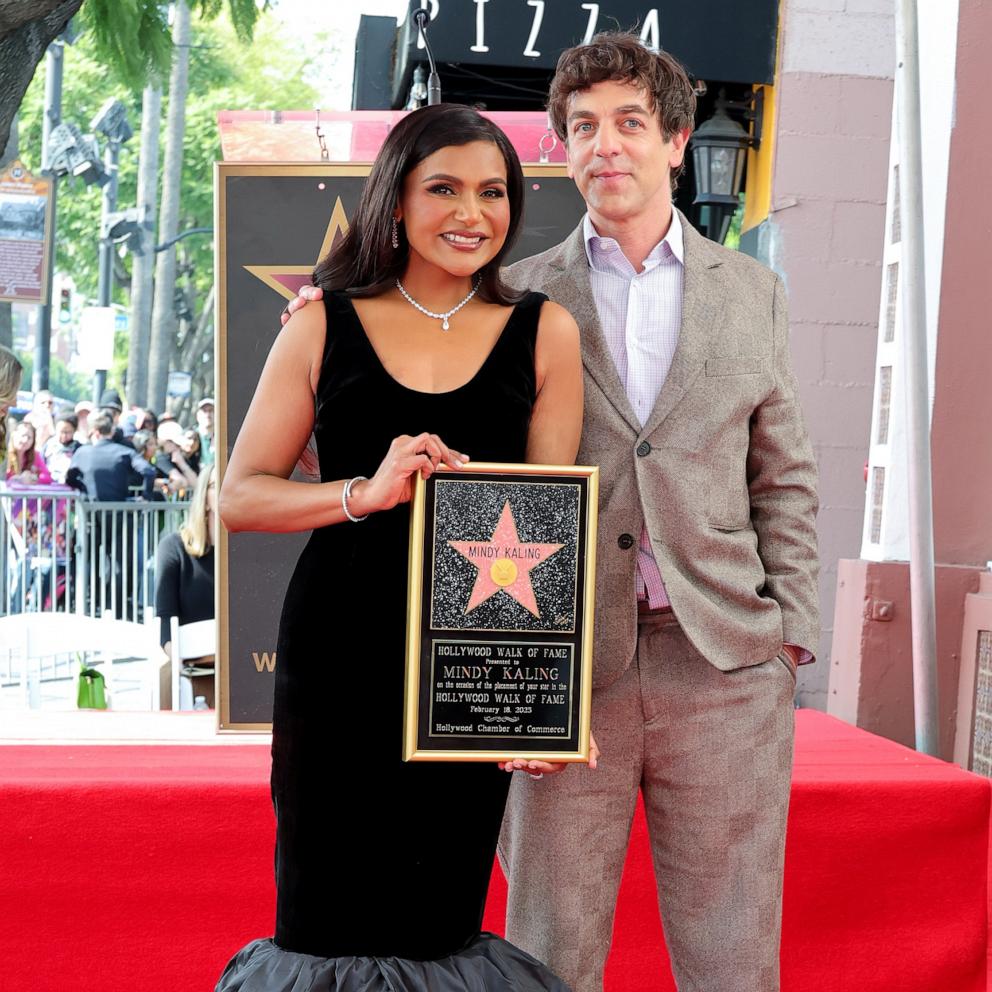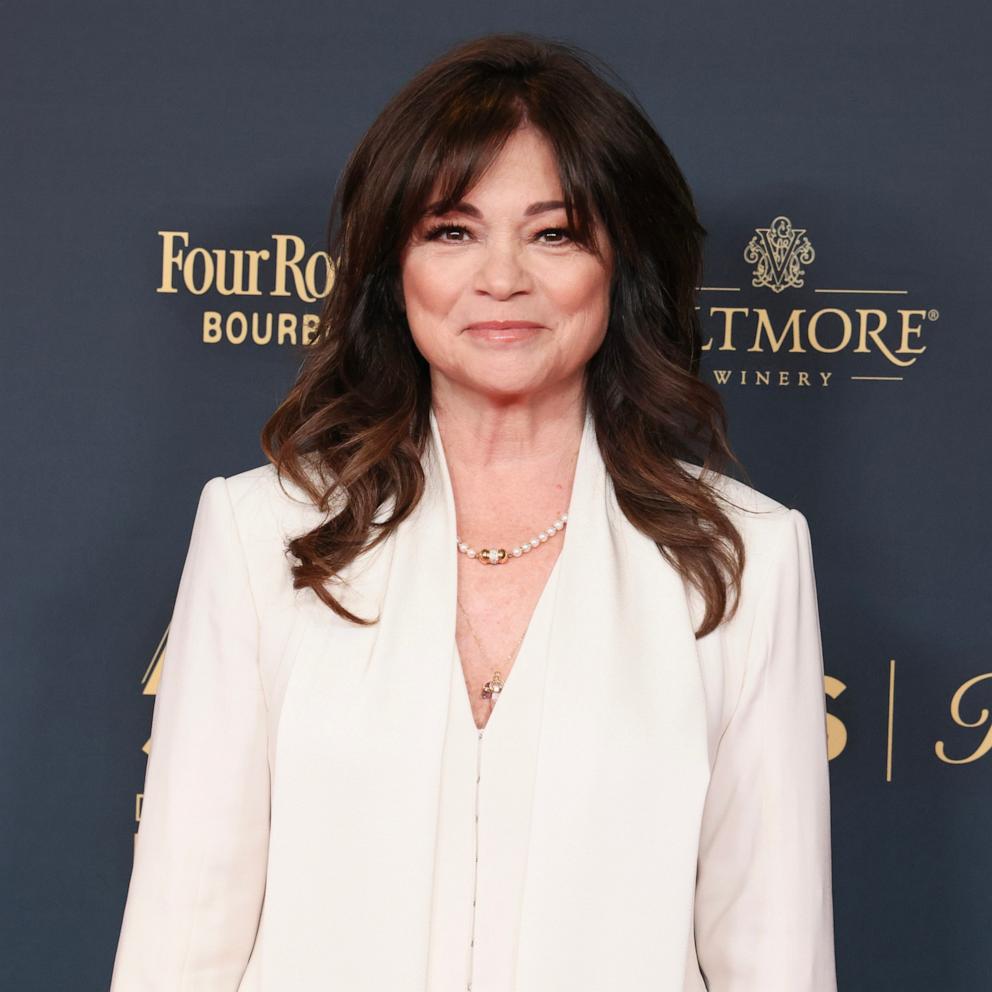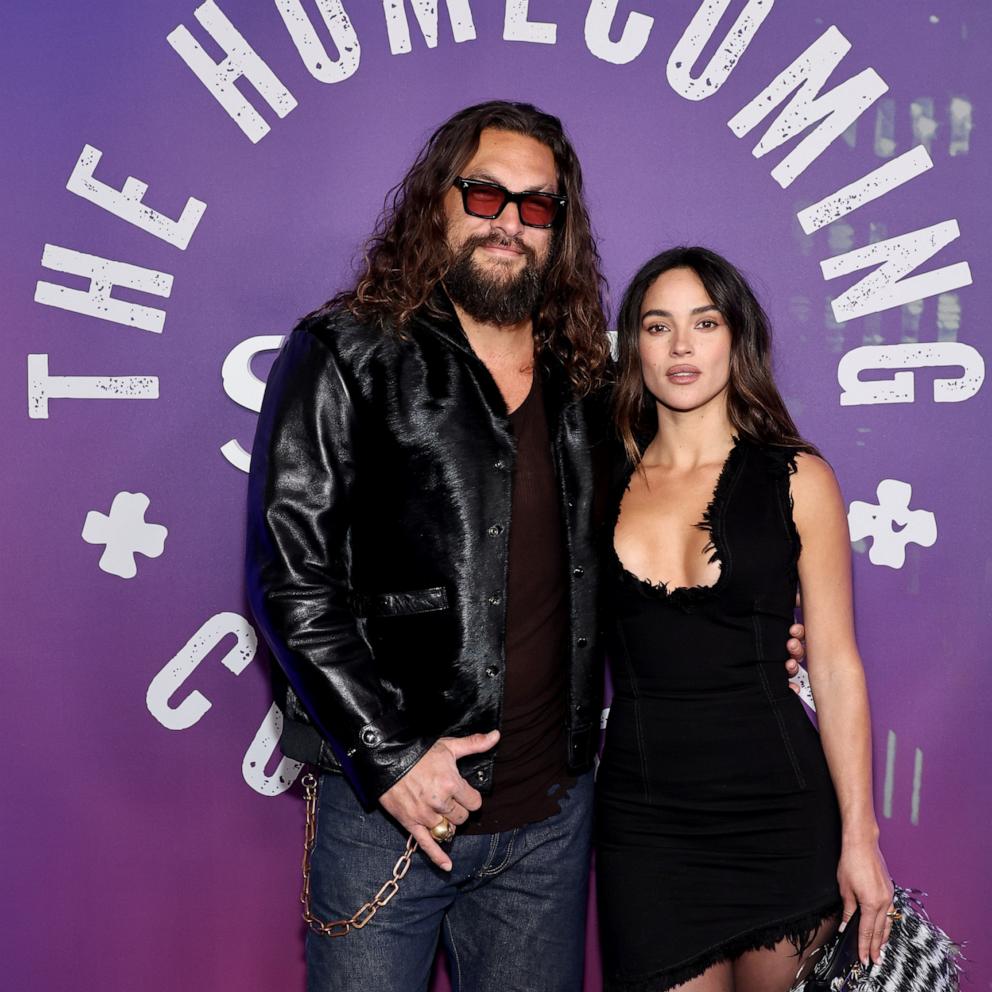Before 'Crazy Rich Asians,' there was 'The Joy Luck Club': Cast, executive producer on the film, an all-Asian cast, 25 years later
A star-studded, predominantly Asian-American cast in a contemporary setting.
An international best-selling novel.
A successful Asian director.
And an Asian female lead actress.
"Crazy Rich Asians" stars Constance Wu from ABC’s “Fresh Off the Boat” as Rachel Chu, an economics professor accompanying her boyfriend Nick Young (played by Henry Golding in the former travel show host’s acting debut) to Singapore to meet his “crazy rich” family.
For Asian-Americans, the romantic comedy may represent a step forward in a long campaign for representation in film that goes beyond stereotypical roles that might involve martial arts, medicine or being the sidekick to the main character.
It’s also the first major Hollywood picture with a predominantly Asian-American cast in 25 years -- its predecessor was “The Joy Luck Club.”
With “Crazy Rich Asians” now in theaters, “Good Morning America” spoke with the stars and director of “The Joy Luck Club” -- who reflected back on their own ground-breaking, Asian-populated feature film, and cheered on “Crazy Rich Asians.”
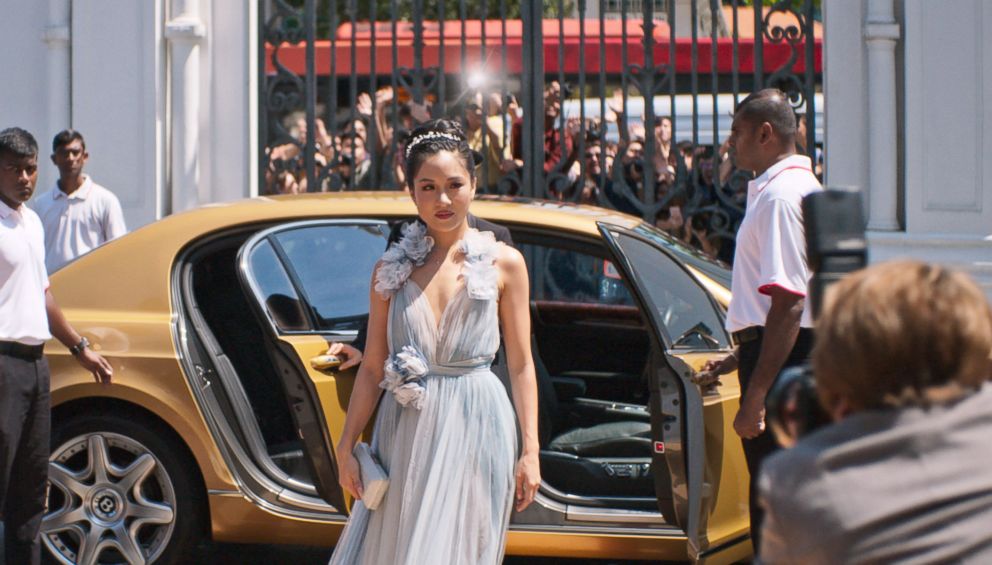
Like “Crazy Rich Asians,” “The Joy Luck Club” was also based on an international best-selling novel by the same name and had an Asian director, Wayne Wang, and an Asian-American lead actress, Ming-Na Wen.
Set in San Francisco, the film adaptation tells the story of four Chinese-American women and the struggles their Chinese-born mothers faced before moving to the U.S. The eight lead characters were Asian women and were portrayed by actresses of Asian descent.
And as barrier-breaking as “Crazy Rich Asians” has seemed to many in 2018, those who were part of the making of “The Joy Luck Club” say they also felt like things were shifting in the entertainment industry for Asian-Americans at the time of the film’s premiere in 1993.
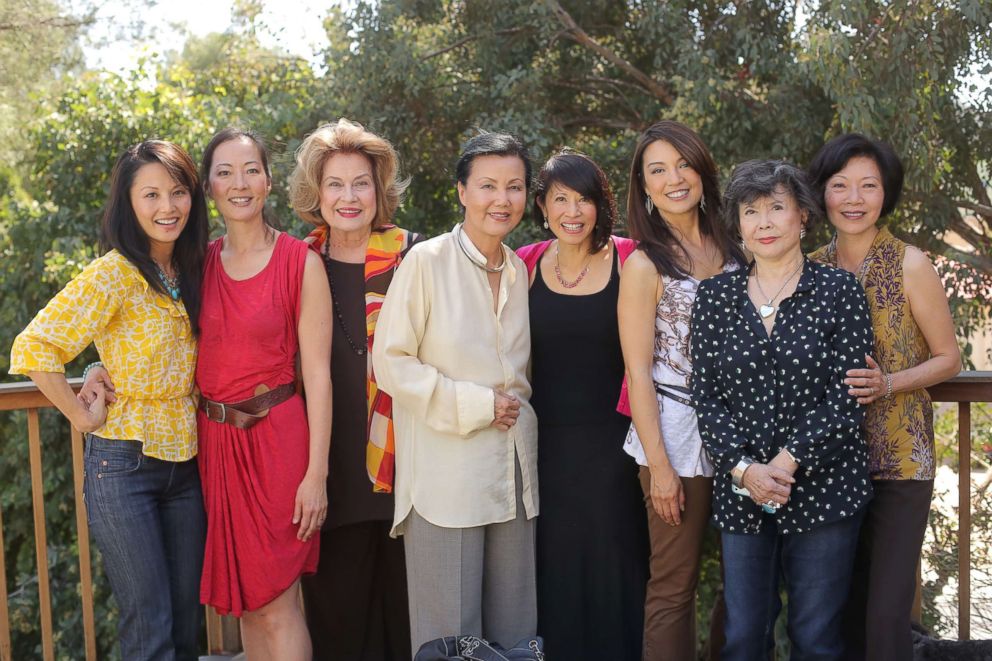
Actress Lauren Tom, who played Lena St. Clair in “The Joy Luck Club,” told “GMA” that she feels that “Crazy Rich Asians” may benefit from its ethnic predecessor.
“Just the fact that people keep mentioning ‘The Joy Luck Club’ meant that it did make an impact,” Tom said. “And I’m not sure ‘Crazy Rich Asians’ would be having the success it’s going to have if ‘Joy Luck Club’ had never existed. People need some time to get used to ideas.”
Another actress from the earlier film, Tamlyn Tomita, echoed the excitement on the “Joy Luck” set.
“When we were filming it, it felt very special,” said Tomita, who played Waverly Jong. “It was a duel sense of pride, because not only was it Asian-American. It was woman-based. I think that’s what caught people’s attention, not only audience-wise, but Hollywood-wise.”
The film’s stars, Tom, Tomita and Rosalind Chao, and its executive producer, Janet Yang, spoke to “Good Morning America” about “Crazy Rich Asians,” their early careers as Asian-American actresses and how things have or haven’t change in the entertainment industry since the premiere of their movie “The Joy Luck Club.”
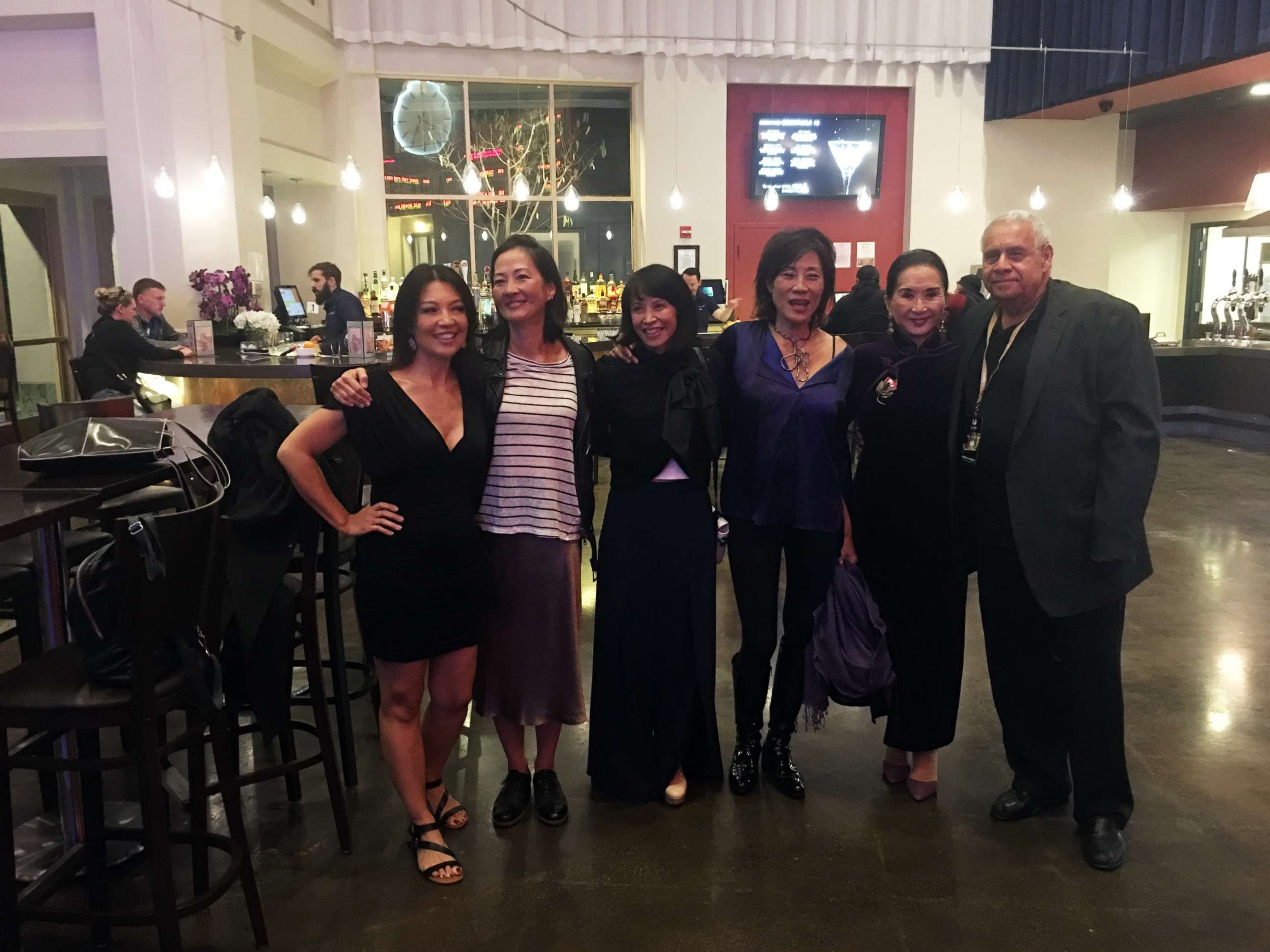
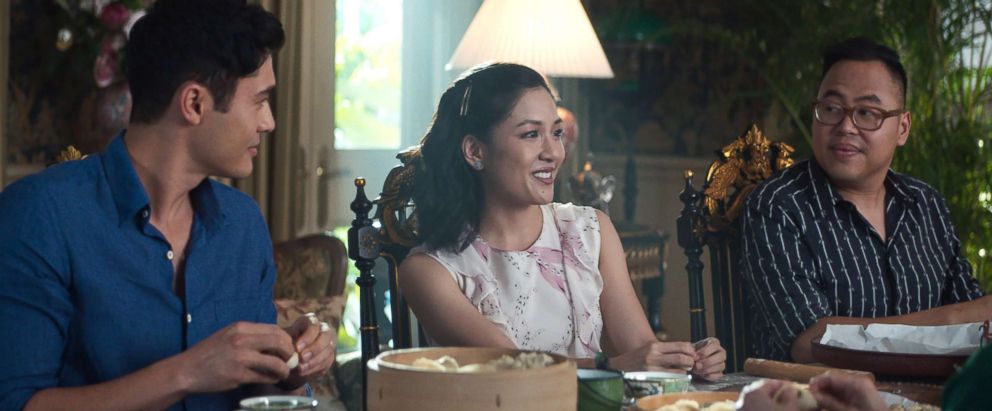
On the impact they hope “Crazy Rich Asians” will have for Asian-Americans in cinema
Yang, who said she’s spoken often with some of the stars of “Crazy Rich Asians” and its director, Jon M. Chu, said she’s hopeful about the movie’s potential impact on the entertainment industry.
“I never really thought I’d see the day where I felt there was a true opening," Yang told “Good Morning America." "People were kind of inching along, and we were fighting the good fight and going up the hill. I’m very grateful for ‘Crazy Rich Asians,’ because I think it’s going to do well, and I think it’s gonna finally be proof that we’re not just a blip and that we can help carry the day and bring global cinema to America.”
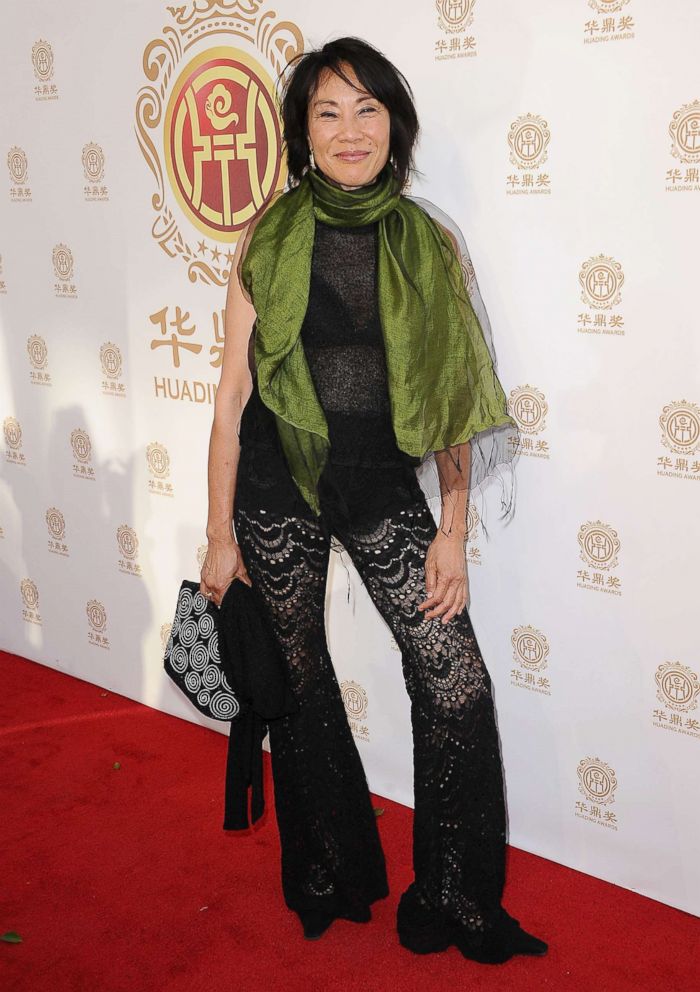
Chao, who plays Rose Hsu Jordan in “The Joy Luck Club,” told “Good Morning America” she was actually on hold for the role of Rachel’s mother in “Crazy Rich Asians,” but no matter what happened with the casting, she said she just wanted the film to be great.
“I feel really optimistic about this next wave, just because the way people responding to ‘Crazy Rich Asians’ is really exciting. And I feel like we’re all supportive.”
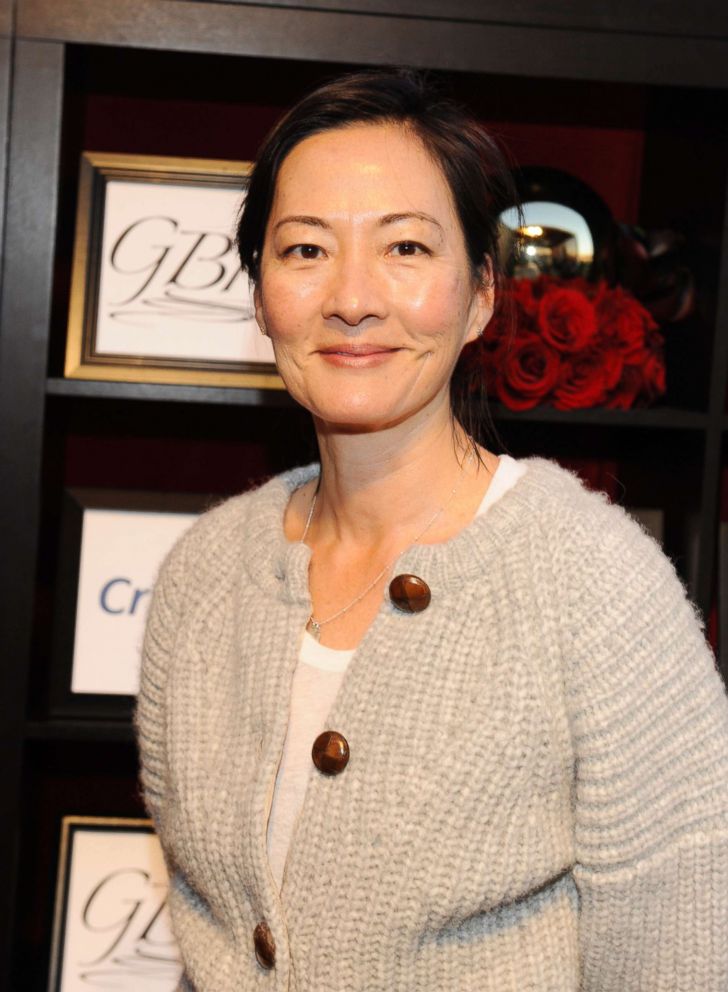
On what the entertainment industry was like when they were first starting their careers
Before she became an actress, Tomita, who was born on a U.S. Army base in Okinawa, Japan, to a second-generation Japanese-American father and an Okinawan-Filipina mother, said she wanted to go to UCLA to study and become a history teacher. That was until she auditioned for role of Kumiko in “The Karate Kid Part II” and got the part.
Early in her acting career, Tomita said she often played Vietnamese characters.
“It always happens that when a foreign country is exposed to American audiences, usually American television uses a female character from that country to introduce that culture through that female character to American audiences,” Tomita siad. “So Ming-Na [Wen], myself and a slew of other actresses, we remember in the ‘80s, ‘How many Vietnamese refugee girls did you play?’ And it’s like, I can probably name five at least, right off the top of my head. So that’s how it was.”
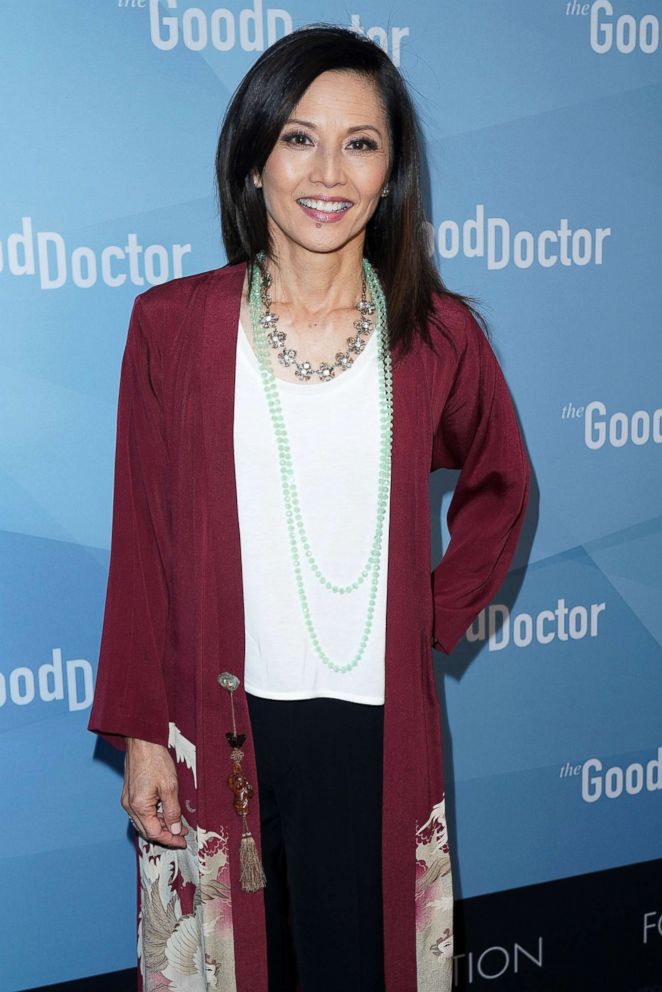
Tomita said she felt pigeonholed in castings, but that “I think I can speak for a number of my fellow male and female actors -- we felt the door opening. It’s been opening at a faster pace over the last five, 10 years, which is great, but it just hasn’t been busted down," she said. "That’s what we’re waiting for, so that goes to feeling discrimination, as like, ‘Oh, where are you from? Or what’s your background?”
“Why is that the question always, you know, in a casting room?" she wondered aloud. "It’s like, do we ask other actors of other ethnicities or of Caucasian descent or of African-American descent of Latino -- do we really ask that question? It’s like, no, not really. And so we’re asking for those opportunities.”
For Chao, her first experiences with the difficulty of being an actress of Asian descent began when she was younger, she said.
Chao, who is Chinese and grew up in California, said she was first discovered as a child in her parents’ restaurant. She started out with appearing commercials and saving the money she made during the jobs for college.
When there were plays or musicals at school or summer camp that she was interested in, Chao said she would be discouraged by others to not audition because she was Asian. Even later in her career, Chao said she fell into roles for Asian women that were often similar.
“Basically, the Asian girl was the one who was the damsel in distress,” Chao said. “That was my standard fare. At some point I’d have to be in a bathing suit, bikini. I was helpless basically, and the white guy would help me out. It was a different era.”
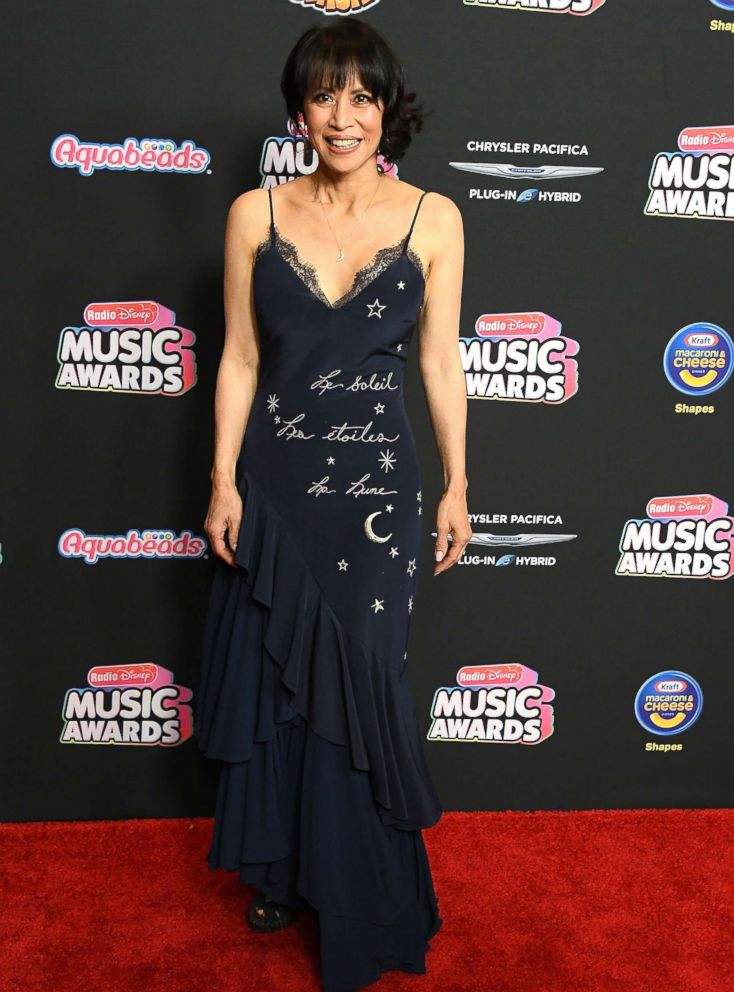
Tom, who grew up as part of the only Asian family in the predominantly Jewish suburban town of Highland Park, Illinois, started out as a dancer.
When “A Chorus Line,” which was on Broadway at the time, went on its first national tour, she was 17 years old and auditioned for the role of a small Asian girl and got a part in the show. The producers gave her singing and acting lessons while on the road, and when she turned 18, she moved to New York and performed in the show for two years, studying acting in her spare time.
“In New York, for theater, it’s way easier to get color-blind casting to go through, because theater is more about the words, and theater is much more visual, so what you look like is the most important thing about film," Tom recalled. "So I didn’t really run into a lot of glass ceilings or stereotypes in Manhattan."
But people warned Tom that she wouldn’t have as many chances as an Asian actress, which she didn’t understand until she moved to Hollywood.
“Some of my friends who were white were getting to go up for these parts, but then they wouldn’t see me, because they knew that I was Chinese ... it still didn’t stop me from trying,” Tom said.
There were also times when Tom said she spoke up because her character’s lines were really stereotypical and refused to say them.
She felt empowered to have enough of a voice to able to say that, both because she wanted to work and saw it as an opportunity for change.
“I knew that if I didn’t do it, someone else would in two seconds,” she said. “And at least, let me try to work with people and educate people more. Because I think, a lot of the times, writers didn’t want to be offensive. A lot of times they just didn’t know.”
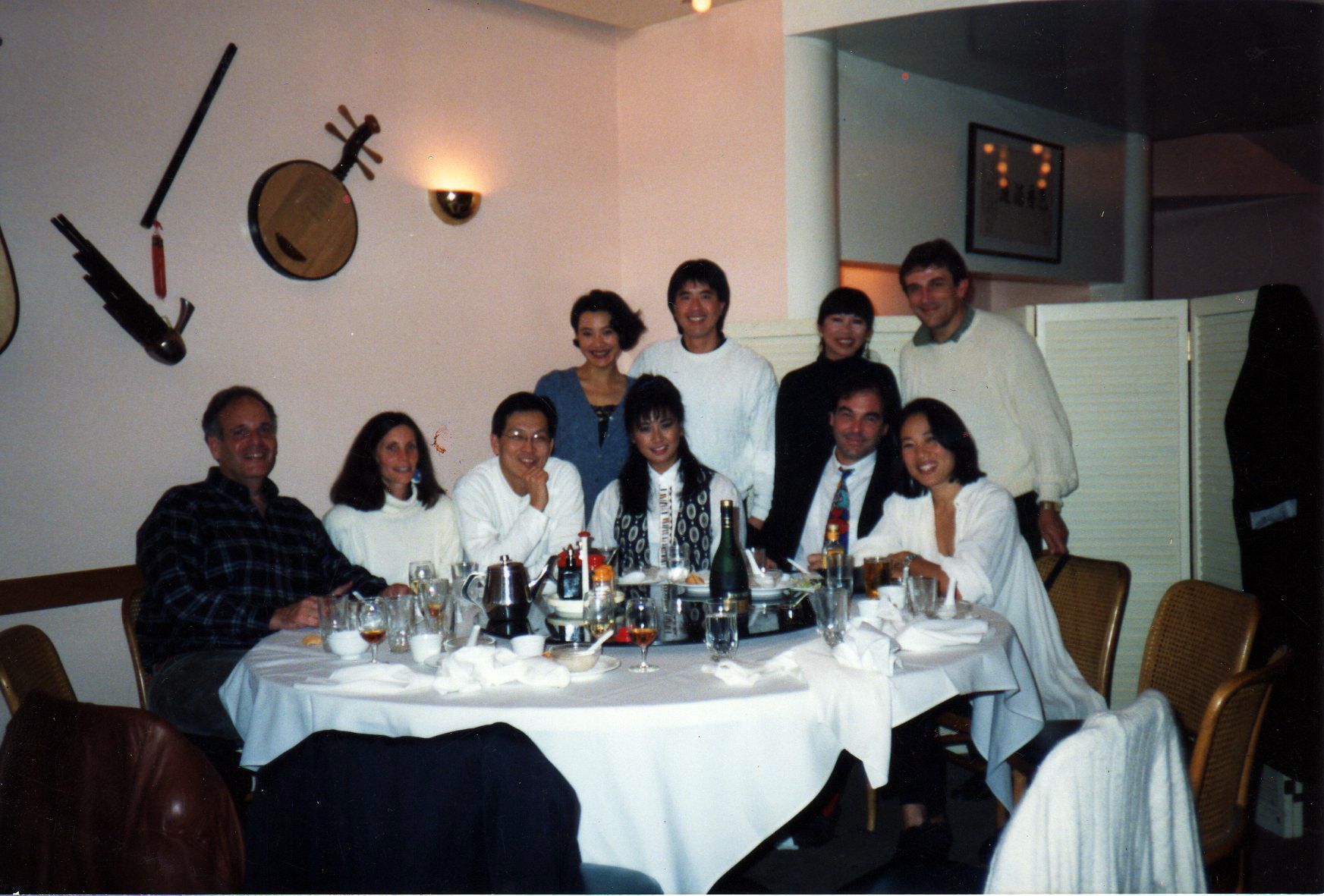
Like Tom, Yang also grew up in predominantly Jewish community in Long Island, New York, but always felt a need to connect with her parents’ Chinese ancestry.
Yang, who studied Chinese history in college, said she was always trying to bridge her worlds and saw film as a medium for accomplishing this. A high level MCA Universal executive eventually found Yang and hired her to help open the market in China for American cinema.
Because she was one of the few people in the industry in her field, she one day got a call from director Steven Spielberg’s producer Kathleen Kennedy. She helped with production for Spielberg’s movie “Empire of the Sun,” which was set in China. They later asked her to become a production executive at Amblyn Pictures. It was during this period she learned about the book, “The Joy Luck Club,” after meeting with publishers about their upcoming books.
Yang said she used to feel lucky to be in her role as an Asian woman, but realized that was not the case.
“Because you come into this environment and you just assume it is meant to be run by white men ... everywhere you look that’s what you see," she said. "So you don’t think about changing that. I just felt like, ‘Oh they let me into the door. Oh I can sit at the table.’ I would be at meetings where it was all white men, and I’d be like, ‘Okay, I guess I was the lucky one that got in.'"
“But now I do see it different. It’s screwed up!” Yang added, laughing. “It’s really screwed up. Like, why was it this way? And I think that’s what a lot people are feeling. It doesn’t have to be that way. We just accepted it.”
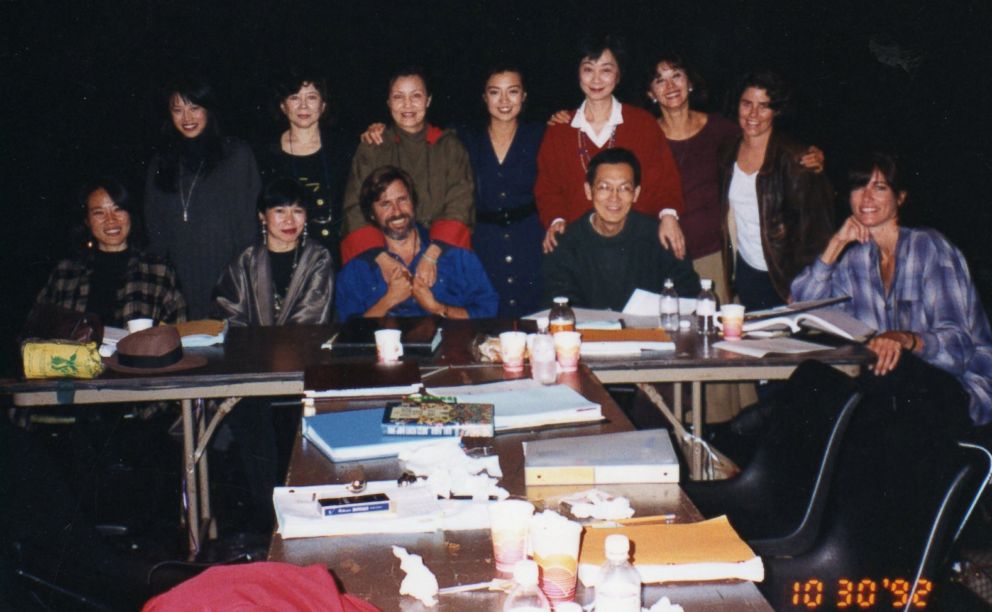
On making “The Joy Luck Club”
Yang said she met with “The Joy Luck Club” book author Amy Tan and promised her she would do everything she could to see the movie version get made, and years later, while running filmmaker Oliver Stone’s company, she brought the project there and “one thing led to another.”
She said it was important to her to diversify not only the cast, but also the crew, which included an Asian costume designer, a Chinese-American editor, and even some of her family members were extras in the film.
Tomita said she didn’t feel that the casting process was ultra-competitive between her and other actresses.
“It’s just like, ‘Hallelujah. We’re all going in for something that means something personal to us,” she said. “In the end, you’re just grateful for a shot.”
Tom said she felt most connected to her character Lena when auditioning, because, “I always felt like such an outsider being in the only Asian family in the whole town, and so I never felt like I fit in.”
She, Tomita and Chao said that they knew the film was important for the Asian-American community, but mainly felt a responsibility to do justice to the writing by Tan, who was on set every day and wrote the script with screenwriter Ronald Bass.
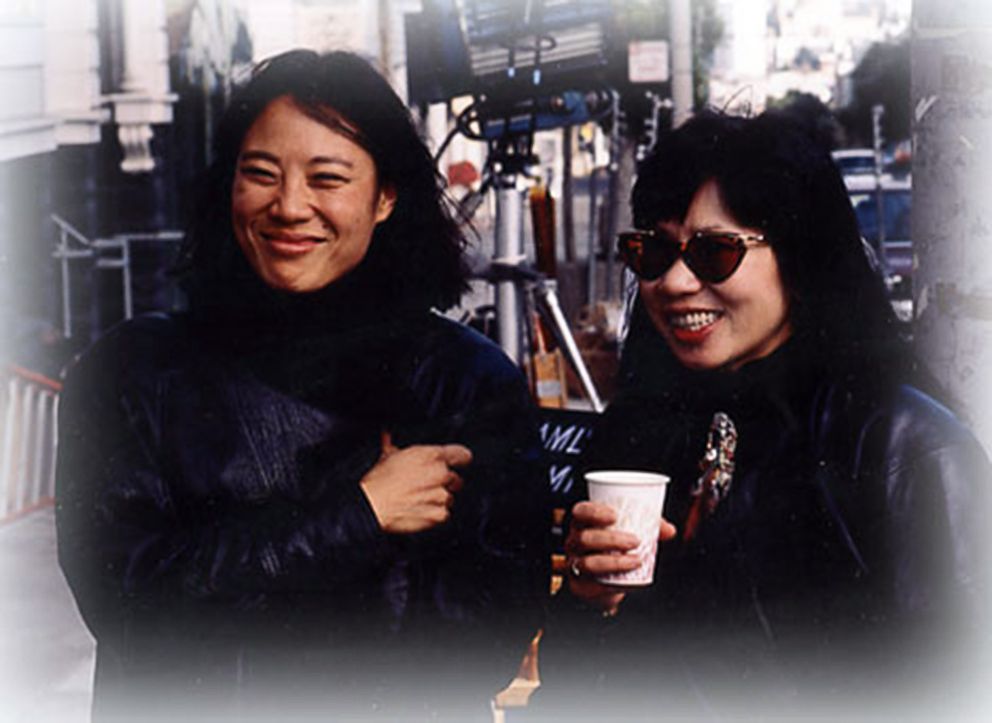
“We were excited and nervous at the same time, because the book had been read by millions of people, we didn’t want to mess it up,” Tom said, laughing. “And we knew we were making something special when we were shooting it because nothing had ever been done like this before and we wanted to be as true to the book as possible.”
“It was the first time I’d read a novel and felt like somebody had looked in on my life and that somebody understood my personal experience,” Chao said.
As an Asian actress, Chao said she always feels the need to supportive of the community, and especially so during the making of “The Joy Luck Club” and the premiere of “Crazy Rich Asians.”
“But, every time I’m in front of the camera, I don’t feel the weight of the Asian community on my shoulders,” she said with a laugh. “And I also feel that we don’t have to be so hypercritical of every Asian-American project that comes out.”
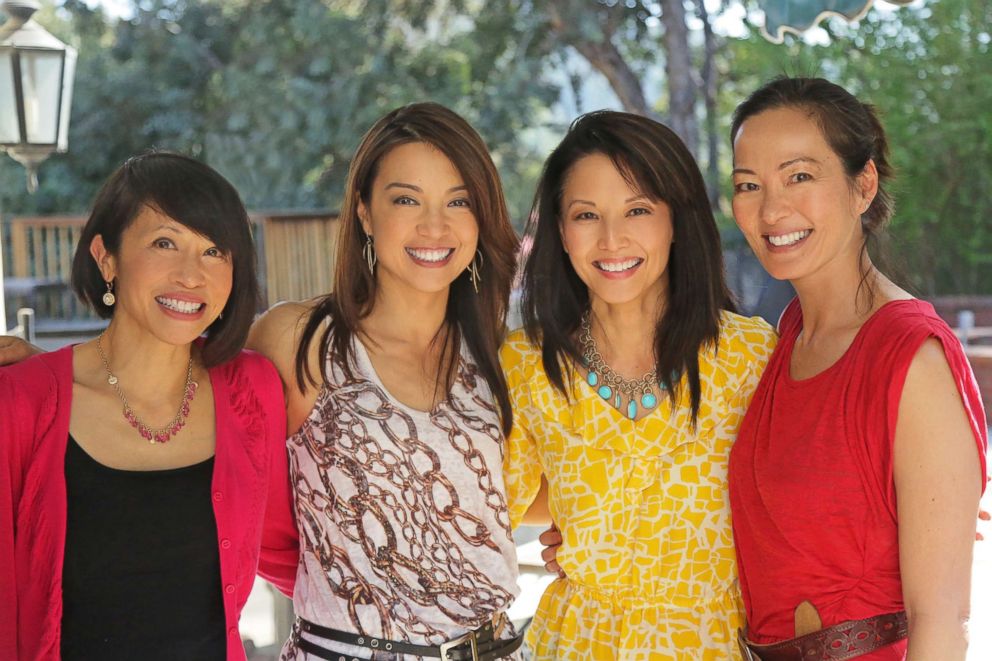
On the legacy of “The Joy Luck Club”
Yang, Chao, Tom and Tomita said they’ve all had encounters with fans, both Asian and not Asian, who told them how the movie changed their lives.
“I knew somebody that was going through a marital issue and she then told me that her therapist advised that she watch Rose’s story line in ‘The Joy Luck Club,’ and she was white,” Chao said. “I do think it touched on universal themes.”
“Especially hearing from Asian men is particularly gratifying,” said Yang.
But Chao, Tom and Tomita said they do believe “The Joy Luck Club” didn’t have the same support and push that “Crazy Rich Asians has today,” especially without the existence of social media.
“I think the truth has borne out that it didn’t really bust open the doors of Hollywood as we hope now with ‘Crazy Rich Asians,’” Tomita said.
“At the time, the community wasn’t as strong as they are now and didn’t have the ability to come together and back ‘The Joy Luck Club’ the way the community has come together for ‘Crazy Rich Asians.’ I think that’s what’s making a big difference this time around,” Chao said.
“This is a movement right now,” said Tom.
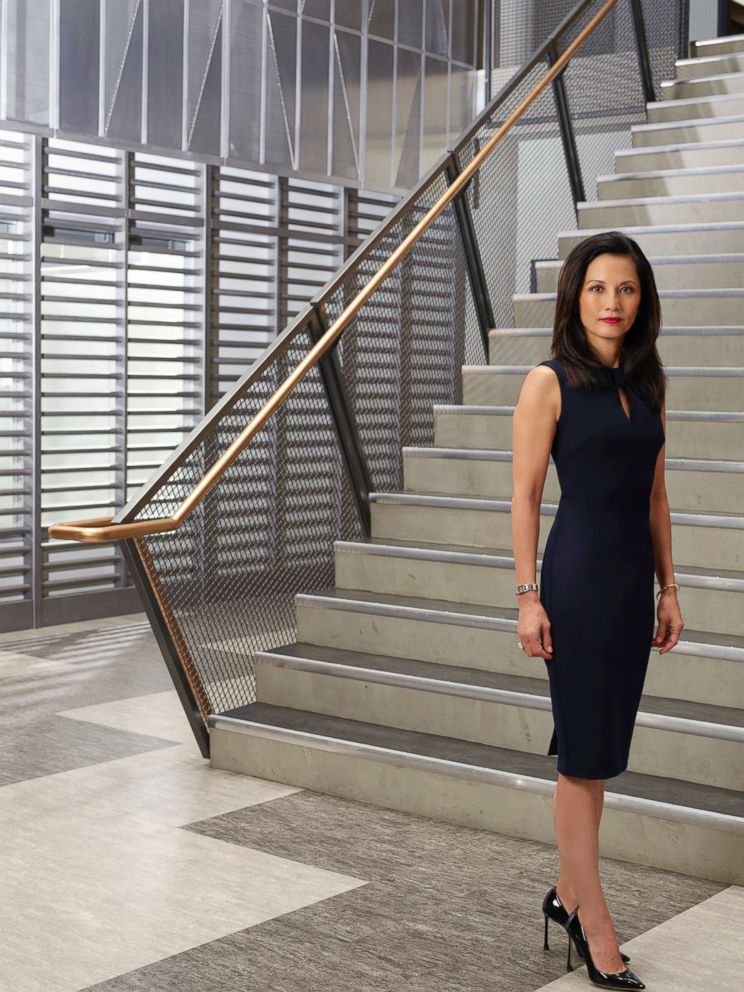
On their careers and the industry today
Tomita, who stars on the “The Good Doctor,” says she’s especially proud of how the TV show is cast.
“We are really, really super proud," said Tomita, who will also appear in upcoming seasons of Amazon’s “The Man in the High Castle.”
"We don’t have to talk about our race or identity. It might come up in how we dress or in our set decoration or something. But it hasn’t been issued head on.”
However, she continues to push for more roles for people of color, especially women, in the industry.
“We need to see more women of color in positions of decision. So that means in the boardroom, speaking to business practices, hiring practices, casting practices that better represent what we want the world to look like,” she said.
Yang, who continues to produce projects and push for more Asian-American representation in the industry, said she sees cinema as a political tool.
“I’m constantly saying to people: ‘It affects politics. It affects business. It affects education. It affects everything,’” Yang said. “We have to recognize that these images are powerful.”
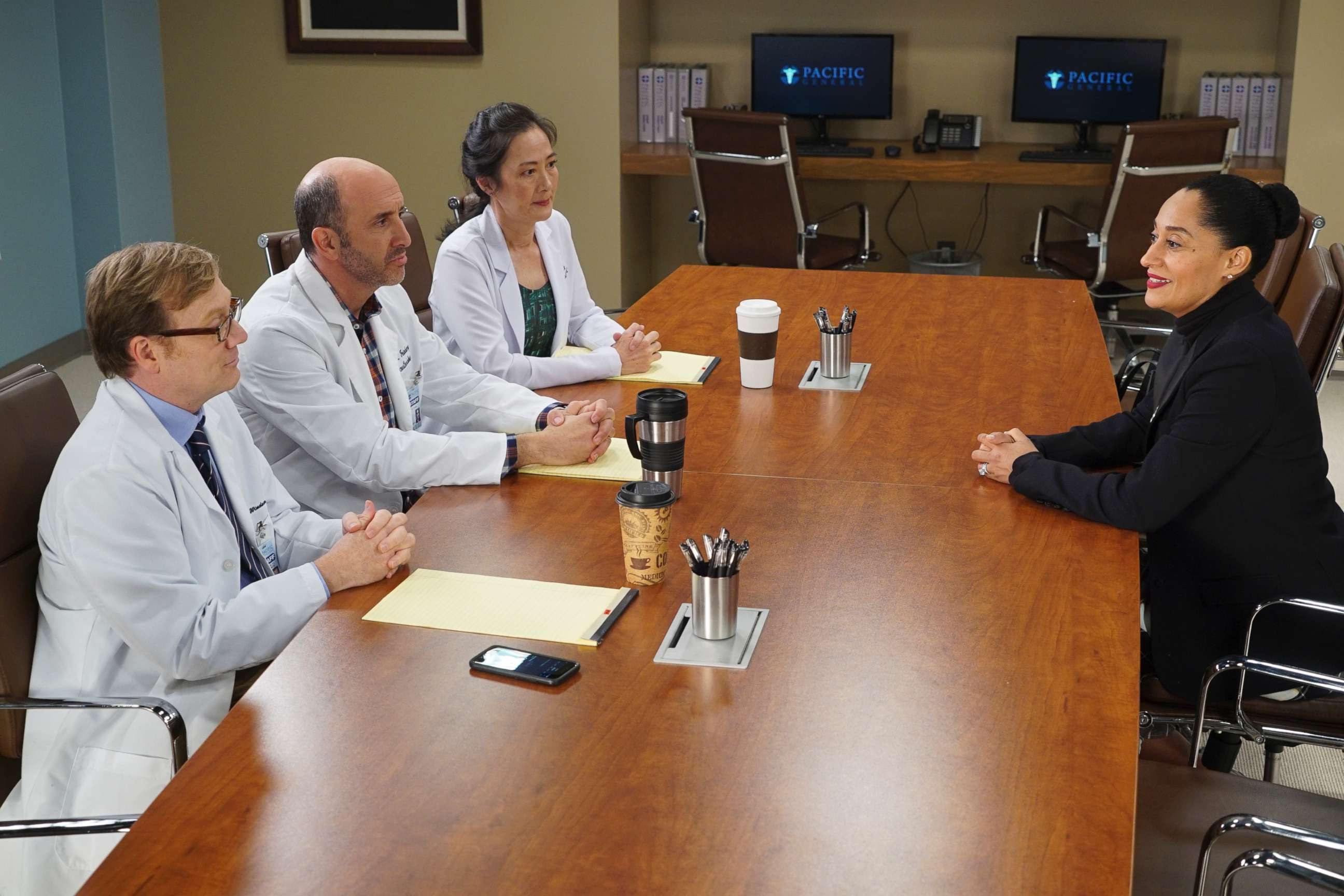
Chao stressed the importance of Asian-Americans, both inside and outside the entertainment industry, bonding together, especially with big breakthroughs like “Crazy Rich Asians” or her upcoming film “Mulan.”
She wouldn’t reveal details about her role in the film, but said the project is another step forward in the industry for her and for Asian representation in film and television. “I’m definitely immersing myself in this. This is lovely,” she said. “That’s why I’m very optimistic. It’s exciting.”
Tom feels blessed “that I’m Asian. I’m a woman. I’m older. I’m short. I shouldn’t even be working!” she said laughing.
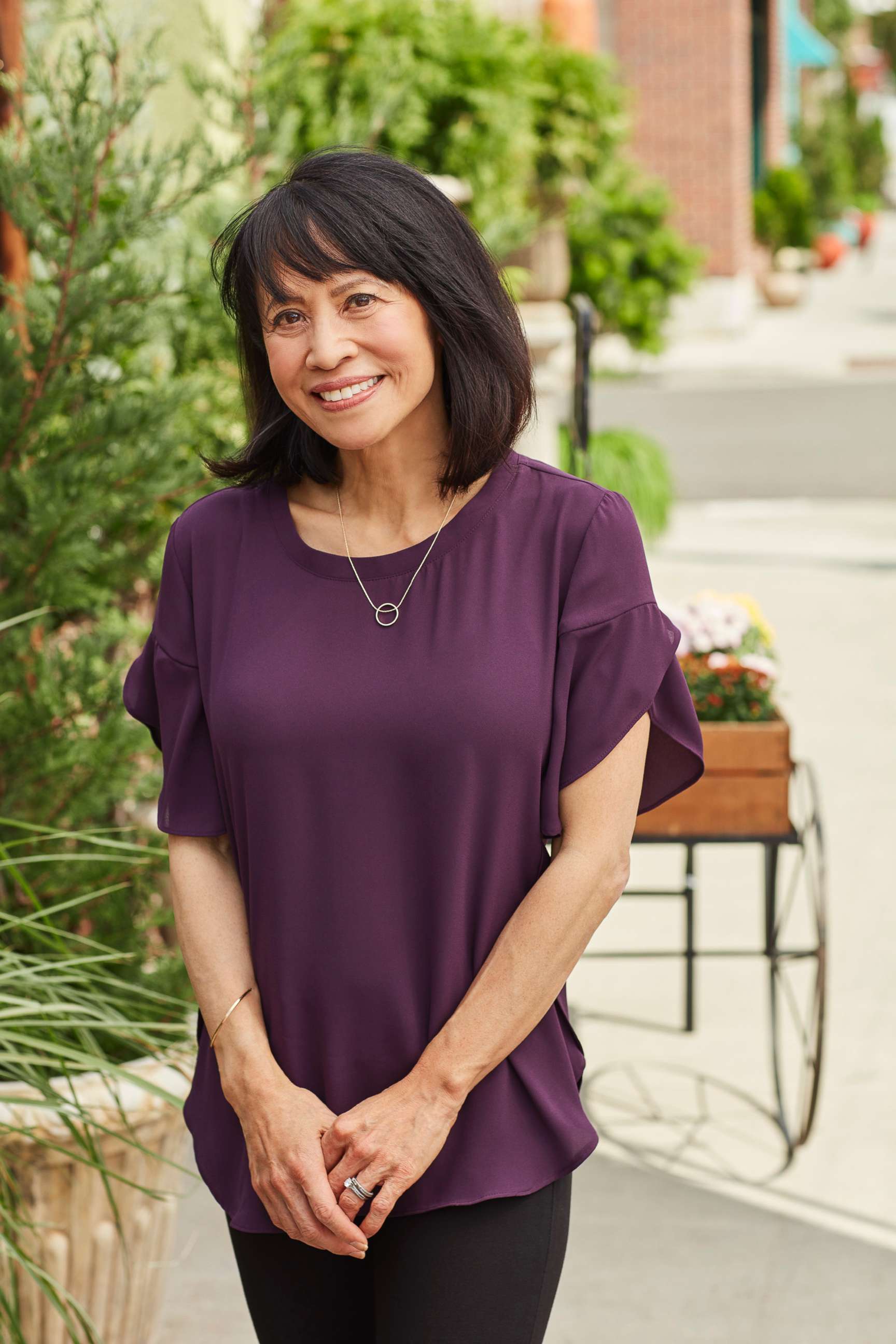
She drew parallels between “The Joy Luck Club” and the Disney Channel show “Andi Mack,” in which she stars as Celia Mack, the titular character’s grandmother and adoptive mother, for both projects’ progressiveness.
In its latest season, “Andi Mack” featured the Disney Channel’s first coming out story and stories of anxiety. “I feel really proud to be a part of a project that is moving things forward,” she said.
Tom continued, “At the end of the day, all that people want is to connect and be seen. In this way, the Asian community can feel seen, to feel like they’re represented out there in the world in a way that’s more true than perhaps other ways in projects that have been written by people who are not Asian.”
